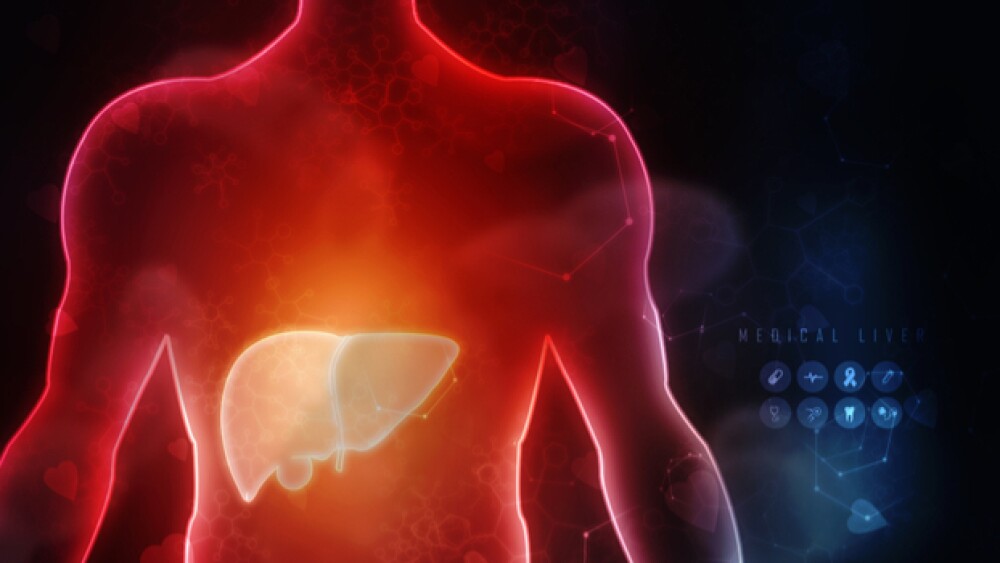The agreement revolves around the development and commercialization of Pliant’s preclinical candidate, PLN-1474, and up to three more integrin targets for liver fibrosis associated with nonalcoholic steatohepatitis.
South San Francisco-based Pliant Therapeutics announced it had inked a strategic collaboration and license deal with Novartis. The agreement revolves around the development and commercialization of Pliant’s preclinical candidate, PLN-1474, and up to three more integrin targets for liver fibrosis associated with nonalcoholic steatohepatitis (NASH).
NASH is similar to cirrhosis of the liver but occurs in patients who drink little or no alcohol. It is a multifactorial disease, involving fibrosis, inflammation and fatty liver. It is associated with high cholesterol, obesity and type 2 diabetes.
At this time, there are no specific treatments for NASH except for lifestyle changes and various medications for the associated diseases.
PLN-1474 was discovered by Pliant. It is a small molecule selective inhibitor of integrin αVβ1. In preclinical research, PLN-1474 selectively blocked the activation of TGF-beta, which is mediated by αVβ1. This decreased the growth of fibrotic tissue within the liver. Pliant is currently running IND-enabling studies on the drug.
Under the terms of the deal, Novartis is paying $80 million to Pliant upfront as well as an undisclosed equity investment commitment. The deal is for worldwide exclusive license to PLN-1474 and up to three more candidates. Also, Novartis will fund Pliant’s research and development activities related to the deal.
Pliant will handle development of PLN-1474 through Phase I. Then Novartis will take over all future development, manufacturing and commercialization activities.
Pliant will be eligible for various milestone payments as well as tiered royalties from the mid-single digits to low double digits.
“Our research continues to generate compelling preclinical evidence that supports the advancement of PLN-1474 as a clinical candidate and validates our approach of evaluating αVβ1 integrin inhibition to treat advanced liver fibrosis associated with NASH,” said Bernard Coulie, president and chief executive officer of Pliant. “Pairing Pliant’s leading integrin biology and drug discovery capabilities with Novartis, a world-leader with one of the broadest pipelines investigating mono and combination therapies for liver diseases including NASH, will support our goal of developing novel therapies for fibrotic diseases and potentially bring meaningful treatment options to patients.”
The NASH market is projected to be worth about $35 billion, but so far it has eluded the biopharma industry. Any number of companies, big and small, are tackling the disease, including Viking Therapeutics, Madrigal Pharmaceuticals, Intercept Pharmaceuticals, Genfit, Allergan, Gilead Sciences, Novo Nordisk and others.
The company closest to a marketable product is Intercept, which filed a New Drug Application with the U.S. Food and Drug Administration (FDA) for obeticholic acid on September 27, 2019. It met the primary endpoint of a Phase III trial in NASH patients and is the only FDA-designated Breakthrough Therapy for NASH with fibrosis. The company requested a Priority Review, which if granted would result in a six-month review period, giving a target action date around the end of March 2020. The company also indicated it planned to file a marketing authorization application (MAA) with the European Medicines Agency (EMA) by the end of the year.
Obeticholic acid has been approved to treat primary biliary cholangitis (PBC) by the FDA under the brand name Ocaliva. PBC is a chronic disease where bile ducts in the liver are gradually destroyed, inhibiting the liver’s ability to clear toxins from the body and leading to cirrhosis.
The next-closest is probably France-based Genfit and its elafibranor. It has received Fast Track Designation from the FDA for NASH and Breakthrough Therapy Designation for primary biliary cholangitis.
NASH is projected to become the leading cause of liver transplants in the U.S. as early as 2020.





